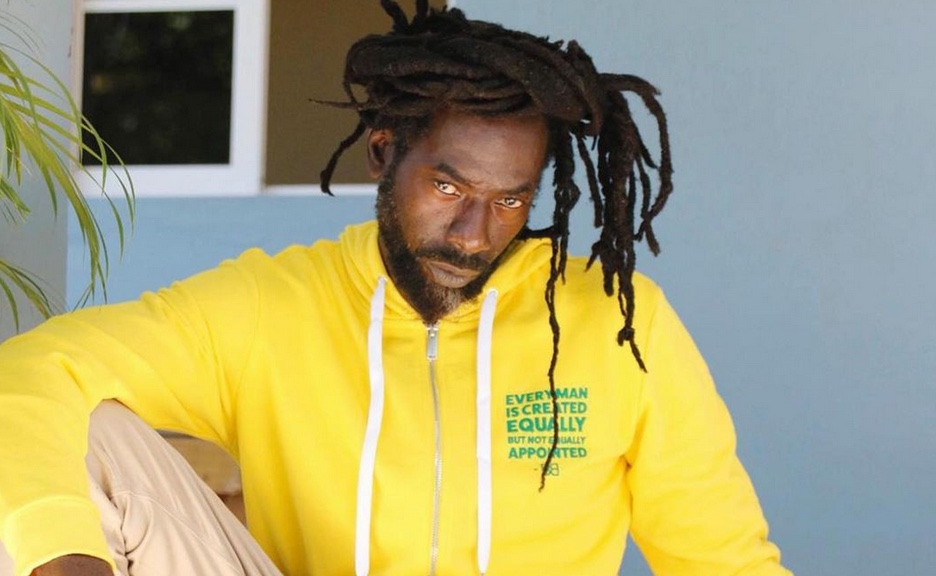Is There a Lack of Diversity When It Comes To Musical Collabs Or is Segregation Always In Place For Reggae/Dancehall Artistes?
Sunday, May 1, 2022, 10:37 AM GMT-5

When I watched an interview with my favorite artiste – Buju Banton, he spent a few minutes discussing Reggae culture and how other countries use it without including Jamaican artistes (https://youtu.be/sXW-TTRVE3w), I decided to dive deeper into this matter. The path I took was easy to carve since all you have to do is look at “views” and “likes” in today’s music world. The numbers speak for themselves. Most of the collaborations I found have gone viral. That got me thinking and forced me to understand the landscape better and why only a handful of performers are the only ones you hear collaborating with an already established superstar.
As a fan of music and all genres, I realize that most releases today consist of a collaborative effort that could result in cross-over success. If you don’t believe me take a look at the Fireboy’s Peru video (https://www.youtube.com/watch?v=GP_LpUoNx-I) and compare it to the same song now with the addition of Ed Sheeran. (https://www.youtube.com/watch?v=pekzpzNCNDQ) The views with Ed Sheeran are over 60 million views in less than five months. The song was still viral without Ed Sheeran, but based on the numbers, the inclusion of such an established artiste has given it worldwide appeal.
I started to think more about Jamaican and Panamanian performers that I follow and enjoy their music. I began asking, why haven’t I heard or seen collaborations with them and other mainstream music stars? Based on aggregated views, it shows that the formula works. Major Lazer is a perfect example of someone that can produce a hit and incorporate different artistes from various backgrounds into a song. It appears that only a selected few are part of the collaboration rotation. I’m not here to hate on those few that are part of the inclusion; at the end of the day, we all have the right to work and earn money to feed our families.
In writing this article, it’s evident that segregation does exist, but on whose side? Both Jamaica and Panama are at fault for not growing their music as Puerto Rican, and Colombian acts have. The lack of vision to expand is what I find alarming. I’ve lived in the United States for over 30 years, and I can count on one hand the number of Reggae songs I heard played on the radio as part of regular programming. I don’t recall hearing a collaboration between Jamaican and Panamainas outside of a few that played on Panamanian radio. If there was awareness of a Spanish movement expanding within Reggae, both countries missed an opportunity to grow their brand.
Is this a cultural issue? For the most part, Jamaicans have been very protective of their culture and who they allow to come in and collaborate with them. Should this remain the approach? It almost makes the music feel more regional than global. When you close your doors and don’t take the initiative to seek growth, the music suffers. The music then becomes dependent on outsiders to expose it. Here’s what I mean by that – I’ll go back to Ed Sheeran. He grabbed a Reggae baseline pattern for his song “Shape of You,” and that song achieved worldwide success. How does a similar piece with the same components and melody not breach that ceiling and reach universal success?
Check out this article published by Billboard.com in 2019 (https://www.billboard.com/music/latin/jamaican-music-reggaeton-revival-trend-8546702/). It mentions a revivalry in Jamaican music and collaborations that needs to occur. Artistes and their management must develop a goal for long-term success. All you have now are quick cross-over hits, which fade away as new music is released. This article paints a positive picture of what combining cultures can do for music and the artistes that create it. The message that I’m trying to convey is similar, but my focus is on the lack of collaborations and finding out why they don’t happen as often as they should?
When you look at musical collaborations, the numbers established by Jamaicans and Panamanians working with Puerto Rican or Colombian megastars are meager compared to unions created by Puerto Rican and Colombian performers. Now add the Dominicans to that mix. They are coming in hot with their version of Dembow. Why aren’t Jamaican or Panamain artistes not being tapped more frequently to create global hits? The talent is there, and it is up to par. Why are we being deprived as music consumers?
Reggae is prominent in the Caribbean, the UK, and Africa, but does that make it global?
Eric George … ✍️
RELATED: The History/Origin of Dancehall
RELATED: Jamaica – One Of The Most Iconic Nations In The World
RELATED: Without Dancehall There Is No Reggaeton… From A Panamanian Perspective



